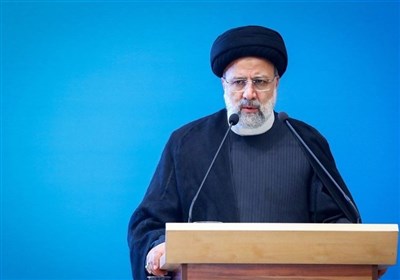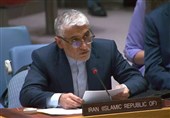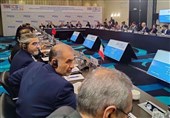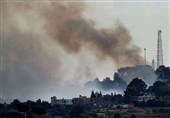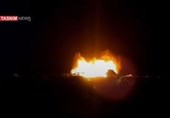Iran, Six Powers Discuss Mechanisms to Carry out Geneva N. Deal
TEHRAN (Tasnim) - Delegates representing Iran and the Group 5+1 (the five permanent UN Security Council members plus Germany) held the first day of expert-level talks in Vienna on Monday to work out mechanisms to implement the November nuclear accord reached in Geneva.
The ongoing talks at the Vienna headquarters of the UN nuclear agency, which are set to resume for the second consecutive day on Tuesday, are meant to discuss the implementation of a landmark deal struck between Iran and the six major world powers over Tehran’s nuclear program.
Iran and the G5+1 (also known as P5+1 or E3+3) signed a six-month deal on Tehran’s nuclear program after three rounds of intensive talks in the Swiss city of Geneva on November 24.
The deal is intended to allow time to negotiate a comprehensive agreement on the nuclear program.
In exchange for Iran agreeing to limit certain aspects of its nuclear activities and allow more inspection of its nuclear facilities, the six world powers have agreed to impose no new sanctions on Iran and to suspend some existing ones on its trade in petrochemicals, automobiles, gold and precious metals, civil aviation parts, and food and medicine. They will also let Tehran receive a small portion of its frozen assets while a permanent agreement is sought.
The Iranian team in this round of talks is headed by Foreign Ministry’s Director General for International and Political Affairs Hamid Baeedinejad.
He was also one of the nuclear negotiators on the Iranian team during Geneva talks.
The International Atomic Energy Agency (IAEA) said it would also have “some involvement” in the discussions, which are to continue today.The IAEA will need to expand monitoring of Iran's uranium enrichment plants and other sites under the November 24 breakthrough deal.
Tehran has agreed to the most intrusive inspection and monitoring regime ever imposed on a signatory of the Nuclear Nonproliferation Treaty (NPT), as it will allow the IAEA to inspect daily its facilities in Natanz and Fordow. For the first time, the country would also allow inspection and monitoring of its centrifuge manufacturing facilities and its uranium mines and mills.
The outcome of the meeting is expected to determine when Iran stops its most sensitive nuclear activity and when it gets the respite in sanctions that it has been promised in return.
Earlier on Sunday, Iran’s Deputy Foreign Minister for International and Legal Affairs Seyed Abbas Araqchi had announced that the expert-level talks in Vienna are aimed at devising mechanisms to implement the interim nuclear deal that was struck in Switzerland.
Meanwhile, Iran's Foreign Minister Mohammad Javad Zarif has warned that the recent nuclear deal will be dead if the US imposes further sanctions against the Islamic Republic.
“The entire deal is dead. We do not like to negotiate under duress. And if Congress adopts sanctions, it shows lack of seriousness and lack of a desire to achieve a resolution on the part of the United States,” Zarif said in an exclusive interview with Time magazine.


